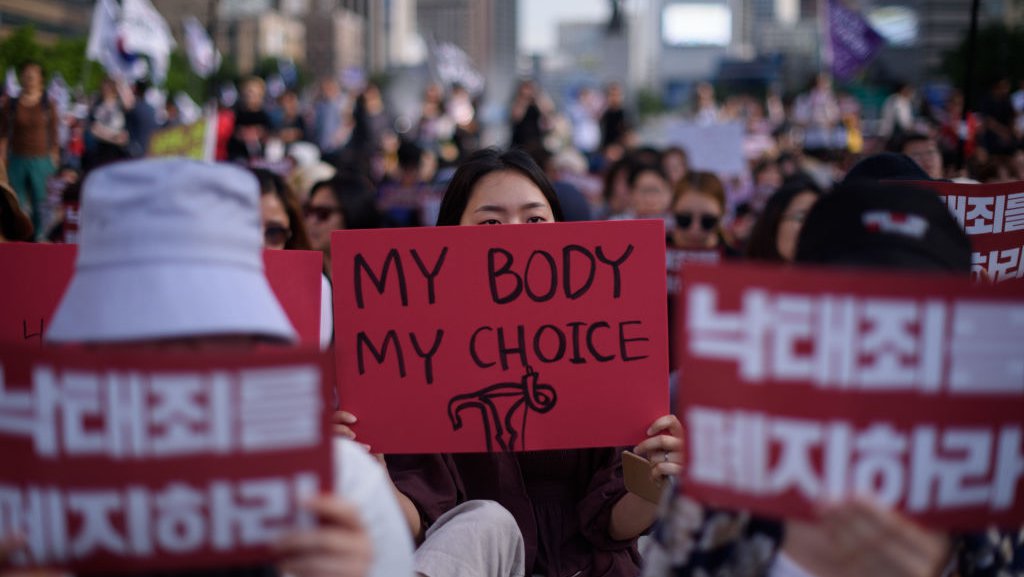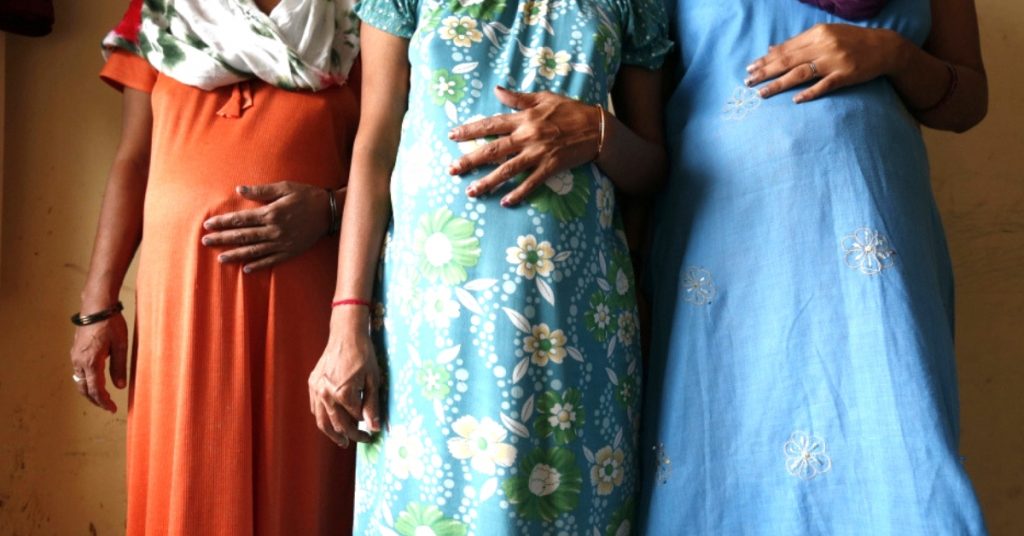Trigger Warning: Rape and Refusal Of Abortion
In early 2017, the Supreme Court of India denied permission to a woman to abort a 26-week old foetus detected with Down Syndrome, on the ground that the 20-week ceiling prescribed in the Medical Termination of Pregnancy Act, 1971 (MTP Act), within which she had to terminate her pregnancy, had already passed. In the same year, the Supreme Court, once again, rejected the abortion plea of an HIV-positive rape survivor, as she was 26 weeks pregnant because she was well over the 20-week limit. In the latter case, the woman initially requested an abortion when she was 17 weeks pregnant, and well within the statutorily prescribed ceiling.
However, the hospital did not timely respond, and by the time she sought the interference of the Patna High Court, she had already crossed the 20-week ceiling. After the Patna High Court denied her request, she approached the Supreme Court, which was also compelled to deny permission, as abortion at such an advanced stage of pregnancy was determined to pose a risk to the lives of both the woman and the foetus. These landmark cases and a host of other judgments that followed suit, which demonstrably interfered with the women’s reproductive rights, recurrently brought the inadequacies in the Indian abortion laws, into focus.

Taking into account the persistent and long-standing demands from women’s groups, the advancing medical technologies, and also to facilitate women’s access to safe abortions, the Ministry of Health and Family Welfare, among other things, proposed enhancing the upper gestation limit for abortion from the currently permissible limit of 20 weeks to 24 weeks; and to do away with the upper gestation limit in cases of substantial foetal abnormalities. Last week, the Union Cabinet approved the proposal, and to give effect to it, the Medical Termination of Pregnancy (Amendment) Bill, 2020 is stated to be introduced in the upcoming parliamentary session.
Downsides of the Proposed Amendments
Failure to safeguard women’s right to autonomy, self-determination and bodily integrity
While the suggested amendments, on the whole, intends to preserve the women’s reproductive rights, they fall acutely short of enabling women to exercise their rights to an extent that they are, in actuality, able to reap the fruits of the law, that is meant for their benefit.
While the suggested amendments, on the whole, intends to preserve the women’s reproductive rights, they fall acutely short of enabling women to exercise their rights to an extent that they are, in actuality, able to reap the fruits of the law, that is meant for their benefit.
The MTP Act, in its current avatar, authorizes one registered medical practitioner (if the woman is less than 12 weeks pregnant) and two registered medical practitioners (if the woman is less than 20 weeks pregnant) to terminate the pregnancy or perform an abortion, if the registered medical practitioners are of the opinion, formed in ‘good faith’, that the pregnancy risks the life of the woman, or causes grave injury to her physical or mental health, or there is a substantial risk that if the child is born, it would suffer from such physical or mental abnormalities so as to be seriously handicapped.
The proposed amendments modify the existing abortion law, to the extent that:
(1) the upper gestation limit will be enhanced from 20 weeks to 24 weeks for ‘special categories’ of women. This will include vulnerable women, such as survivors of rape, minors, victims of incest and differently-abled women;
(2) for terminating the pregnancy upto 20 weeks, opinion of one practitioner is required, and for terminating the pregnancy of 20-24 weeks, opinion of two practitioners is required.

Demonstrably, the proposed amendments do nothing to address the problems posed by the archaic MTP Act:
First, the proposed amendments continue to disregard numerous other legitimate reasons for seeking termination of pregnancy. For instance, the conditions that did not exist at the time of conception, or were inconspicuous, eventually change to an extent that they become game changers in relation to the decision of whether to keep the baby or not; or women initially decide to keep the baby as they succumb to third party pressure, but eventually are able to take a strong stand on what they personally desire owing to their realistic circumstances; or the sudden loss of the support that had in the first place impelled the woman to keep the baby. The law ought to take into consideration, such well-founded reasons and the emotional ramifications of an unwanted pregnancy into account, as against the prevailing narrowly-construed limited circumstances in which the law (and patriarchy) approves of abortion.
Also read: The MTP Act And Why Women Should Have The Absolute Right To Abortion
Second, the proposed amendments continue to empower third party medical practitioners by bequeathing upon them, the power to take the decision vis-à-vis the woman’s womb and her pregnancy, consequently appropriating the woman of her most innate and intimate rights: right to autonomy, self-determination and bodily integrity. The one and only factor that ought to be taken into consideration before terminating a pregnancy (especially when the pregnant woman’s life is not at stake), is the woman’s consent.
the proposed amendments continue to empower third party medical practitioners by bequeathing upon them, the power to take the decision vis-à-vis the woman’s womb and her pregnancy, consequently appropriating the woman of her most innate and intimate rights: right to autonomy, self-determination and bodily integrity.
Upsides of The Proposed Amendments
Facilitates abortion even after 24 weeks in case of foetal abnormalities; and ensures privacy
One of the most apparently laudable aspects of the proposed amendments is that abortion can now be sought even after 24 weeks, if there are ‘substantial foetal abnormalities’. This significant amendment is likely to enable women to terminate their pregnancies at any time through their term, if there are substantial foetal abnormalities, without having to do rounds in the mighty halls of the layered judiciary, and thereby mitigating the trauma associated with the abortion process, to an extent.

However, even in this case, pregnancies can be terminated only after the foetal abnormalities are diagnosed by the medical board. The composition, functions and other details of such medical boards are yet to be formulated. One can only hope that the proposed boards are so structured that the women can efficiently decide and undergo abortions, without being entangled in bureaucratic quagmires.
Also read: Women On Web Making Self-Managed Safe Abortion Accessible
Further, the proposed amendments provide that the name and other particulars of a woman whose pregnancy has been terminated will not be revealed, except to a person authorized by law. Arguably, these amendments make a considerable headway in terms of attempting to protect the privacy of women, who undergo abortions.
Prarthana is a Mysore based lawyer. You can find her on Twitter.
Featured Image Credit: Maitri Dore
About the author(s)
Lawyer, feminista, foreign relations commentator, dark chocolate glutton, coffee-maniac, aspiring globetrotter.




